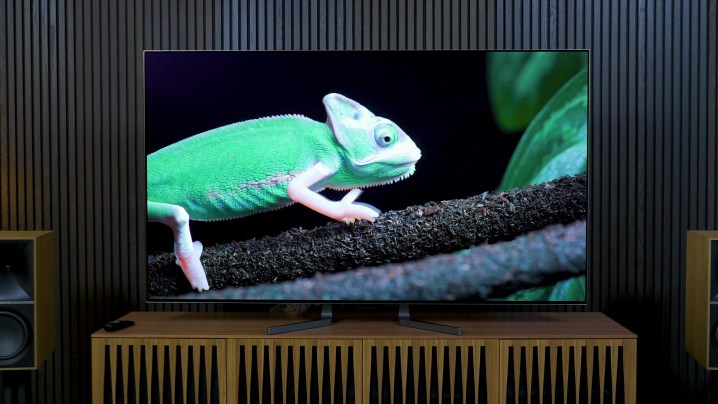
The transition from ATSC 1.0 to ATSC 3.0, the newest standard for over-the-air (OTA) broadcasting, hasn’t been going very smoothly. Now, it looks like a patent dispute is about to make things worse, at least for folks who buy a new 2024 TV from LG.
According to LG, its 2024 TVs will lack ATSC 3.0 (also known as NextGen TV) compatibility, and if the Federal Communications Commission (FCC) sticks to its current plan of forcing broadcasters to shut down their ASTC 1.0 signals by June 2027, these TVs will have no way of receiving OTA stations after that time — without the help of a third-party set-top box.
The decision comes as something of a surprise. Until now, LG has been one of ATSC 3.0’s biggest supporters. It has included NextGen TV-compatible tuners in almost all of its flagship OLED and LED TVs for several years in anticipation of the new OTA digital standard becoming the way that all U.S. broadcasters deliver content via antenna.
Patent squabble
In a recent letter to the FCC, LG details the way a specific set of patents has caused it to abandon its support of ATSC 3.0 going forward.
The issue stems from patents held by Constellation Designs, LLC. These patents cover items that are deemed “essential” to compliance with the ATSC 3.0 standard, but Constellation Designs hasn’t included these patents in the patent pool that covers most, if not all, of the other essential ATSC 3.0 patents. In other words, LG and any other manufacturer that wants to include ATSC 3.0 in its products must negotiate a separate licensing deal with Constellation Designs outside of the royalty fees that are already being paid to the license pool.
When LG began its inclusion of ATSC 3.0 technologies in its TVs, this arrangement was apparently successfully negotiated. Now, LG contends that Constellation Designs has increased its royalty fees by over 100%, from $3 per TV to $6.75. LG sees this as a departure from the normal ATSC requirement that essential patent holders set royalties on a “reasonable and non-discriminatory” (RAND) basis. LG and Constellation Designs have even gone to court over the matter, but the case was decided in favor of Constellation Designs.
It’s not over yet
There’s still a chance this problem could go away. LG has indicated it may yet appeal the court’s ruling, and if it does, it could win that appeal. It’s also possible the FCC will review its 2027 deadline, thereby extending the amount of time that ATSC 1.0 broadcasts remain available — LG’s TVs will continue to be ATSC 1.0 compatible regardless of their ATSC 3.0 compatibility. However, if the patent dispute can’t be resolved, this just kicks the problem further down the road.
It’s also possible that LG has made its declaration regarding its 2024 TVs as a bargaining chip, showing its resolve in the hopes that this will force the FCC to act on the matter. In its letter, LG effectively asks for that:
“LG strongly urges the Commission to recognize the role of patents and the rights of both patent licensors and licensees, and especially their impact on the rollout of NextGen TV products in the United States. We urge the Commission to continue its inquiry in this area and to recognize the benefits of RAND behavior. The Commission may wish to examine the effects of patents held by patent holders that have not committed to offer their patents under RAND terms.”
If the FCC is able to resolve the patent dispute, LG still has time to walk back its decision to abandon ATSC 3.0.
Pearl TV, a business organization of U.S. broadcast companies whose membership includes more than 750 TV stations, many of which have begun broadcasting in ATSC 3.0, seems optimistic a resolution can be reached. “LG’s decision to suspend support for NextGen TV products in 2024 because of an ongoing patent dispute is unfortunate,” said Anne Schelle, Pearl TV’s managing director, in a statement provided to Digital Trends, “but we are hopeful that the matter can be resolved. In the meantime, we continue to project that total NextGen TV sales will cumulatively top 10 million units by year end.”
Editors' Recommendations
- Music might not bootstrap NextGen TV and ATSC 3.0, but Roxi at least tries to make it fun
- LG’s new M-Series Wireless OLED TVs start at $5,000
- Tablo’s latest over-the-air DVR does ATSC 3.0 — with a catch
- ATSC 3.0: Every 2020 TV that supports NextGen TV
- Why you should wait to buy a new 2020 TV




